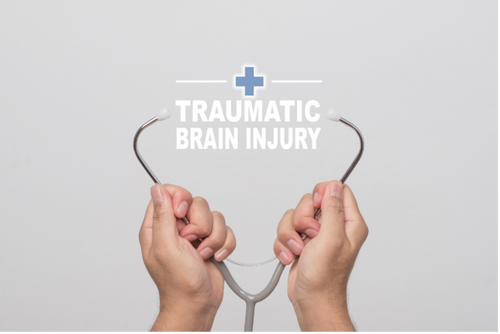
19 Mar 5 Scary Facts About a Work-Related Traumatic Brain Injury
In Las Vegas, famously known as the Sin City, there is often so much going on, from the buzzing nightlife, energetic casinos, and heavy traffic to continuous construction. Whether you work in an office, casino, or construction, you are at risk of sustaining a traumatic brain injury, famously known as a TBI.
Many people underestimate the lifelong consequences that come thereafter. This may cause victims to settle for much lower compensation or overlook some expenses. This is where a brain injury lawyer in Las Vegas comes into play.
Here are five scary facts about work-related TBIs every employee working in Las Vegas should know about.
1. TBIs Are Much Common Than You Think
People think that TBIs only happen after extreme cases like a fall from a scaffolding. However, they occurred in common. According to the CDC, there were 191 TBI-related deaths every day in 2021. This comes to around 69,000 deaths every year.
In a city like Las Vegas, where the hospitality industry is a hit and people work in busy and sometimes not well-lit areas, workers face a high risk of head injuries. From slipping on a wet casino floor to falling over debris at a construction site. All these could lead to TBIs.
2. TBIs Can Have Lifelong Consequences
As mentioned, TBI causes much more than a short-term inconvenience. Depending on how severe the injury was, victims may suffer from:
- Memory loss
- Have trouble concentrating
- Mood swings and depression
- Chronic headaches and dizziness
- Sensory impairments like sight and ear problems
For those working in a fast-paced environment like a casino, a TBI can make it harder to return to work. In cases of permanent disability, it may lead to completely losing independence.
3. Many TBIs Aren’t Diagnosed
Not all TBIs are obvious. Some symptoms, like headaches and dizziness or confusion, take days or even weeks to become apparent. With this delay, it is easy for workers to mistake a TBI as a minor thing.
In Las Vegas, where long working hours and physically demanding jobs are common, employees may feel pressured to push through the symptoms and not get immediate medical attention. Even if you feel fine, it is important to get medical attention if you hit your head at work.
4. Workers’ Compensation May Not Cover all Costs
Many workers make the mistake of assuming workers’ compensation will cater for everything from medical bills to lost wages. However, the Nevada workers’ compensation system has limits and many workers may find themselves struggling financially because of:
- Claims being denied by an employer
- Getting partial coverage
- Lack of compensation for pain and suffering
5. A TBI Can Permanently Change Your Personality
One terrifying fact of a TBI is that it can change who you are. Damages to certain parts of your brain can cause dramatic mood swings and behavioral changes. Victims have reported having sudden aggression and becoming highly irritable. Others have difficulty controlling their emotions, leading to inappropriate behavior. You could also lose interest in things you once enjoyed and suffer chronic depression, leading to suicidal thoughts.
Conclusion
A work-related TBI is something very serious. In Las Vegas, where people work in high-risk environments, it is important to be aware of these dangers and consult an attorney once you suffer a work-related TBI.
More information:
Sponsored post
———–
The information on MedicalResearch.com is provided for educational purposes only, and is in no way intended to diagnose, cure, or treat any medical or other condition.
Some links are sponsored. Products and services are not endorsed.
Always seek the advice of your physician or other qualified health and ask your doctor any questions you may have regarding a medical condition. In addition to all other limitations and disclaimers in this agreement, service provider and its third party providers disclaim any liability or loss in connection with the content provided on this website.
Last Updated on March 19, 2025 by Marie Benz MD FAAD
